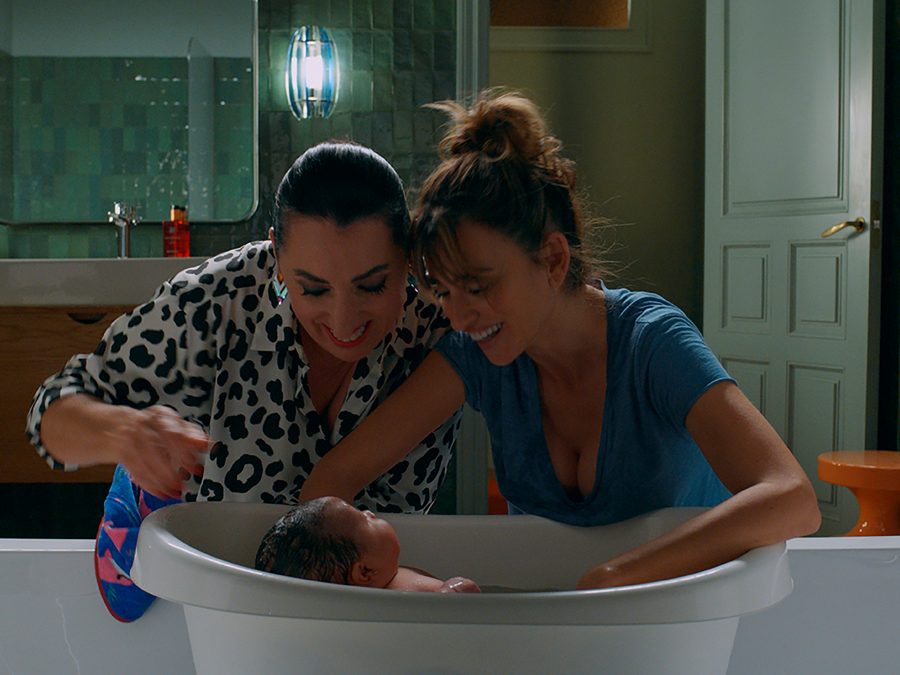Femininity, pathos, generational trauma and collective memory converge in Pedro Almodóvar’s latest masterpiece.
Pedro Almodóvar’s sensual melodrama of identity, maternity and sexuality plays like a remix of 2006’s Volver cross-processed through 1999’s All About My Mother and even 2002’s Talk to Her – so that’s all of his best films in a single package. And forget boxes: most will require a flat-bed truck stacked with Kleenex to make it through this one without the irritant of tear-based obfuscation.
This is a film about coping with the trauma of death, but also the difficulties of comprehending how others create their own mechanisms to deal with that same trauma. There are moments of unimaginable sadness which segue smoothly into brightness and levity. Life is presented as a collection of small disappointments and modest victories, with acceptance and forward momentum key not only to how the characters evolve but how this surprising tale unravels.
It’s also rare to see death discussed with such lyricism and circumspection. Every shot, every narrative beat, every decision exudes not merely confidence, but the touch of a master.
As director-star pairings go, there’s very little that beats an Almodóvar/Penélope Cruz effort, and this latest appears to prove that the beloved Spanish leading lady saves all of her A-material for Pedro. And why wouldn’t you? Here she plays Janis (named after tragic hippy rebel Janis Joplin), a magazine photographer who is interested in disinterring the unmarked grave of her grandfather who was executed by Falangists during the Franco regime. When she is one day asked to make a portrait of celebrity archeologist Arturo (Israel Elejalde), she solicits his help, and the pair also embark on an affair.

Their tryst is short lived as he has to tend to his ailing wife, but it produces a child that Janis – in the spirit of her pioneering grandmother – decides to bring up alone. While on the maternity ward she meets Ana (Milena Smit), a troubled teen carrying a baby whose father is unknown.
The pair strike up a bond when their children are born simultaneously. Their complex future entanglements comprise the bulk of the plot, and Janis is forced to make a series of heart-wrenching decisions in order to reconcile her love for her child, and her dedication to stalwart feminist independence and survival at all costs. As with 2019’s autobiographical Pain & Glory, this one confines much of the drama to Janis’s bijou Madrid flat, in which every shot heaves with background literary references, suggestive art pieces and fabulously gaudy colour combinations.
Almodóvar has for many decades been characterised – and lauded – for his empathy towards the struggles of women at the hands of tyrannical men, and Parallel Mothers both doubles down and subtly expands on that remit. Janis is the epitome of a Strong Female Lead, but she comes with baggage, texture and even shades of moral duplicity that snags her away from the realms of the clichéd. And that’s largely down to Cruz’s extraordinary performance, in which she doles out magnificently effective emotional body blows at a rate of knots, while never once appearing like she’s breaking a sweat.
Published 27 Jan 2022
Following Julieta and Pain & Glory, Almodóvar is on a major roll.
Lands emotional body blow after emotional body blow. Penélope Cruz is immense.
Right up there in the ranks of the director’s finest work.

Check out 10 of the Spanish maestro’s most flamboyant, exuberant and downright gaudy posters.

The legendary Spanish filmmaker throws open the doors of his Madrid work space to the hungry eyes of LWLies.

Pedro Almodóvar reunites with some familiar faces for this masterful trip down memory lane.